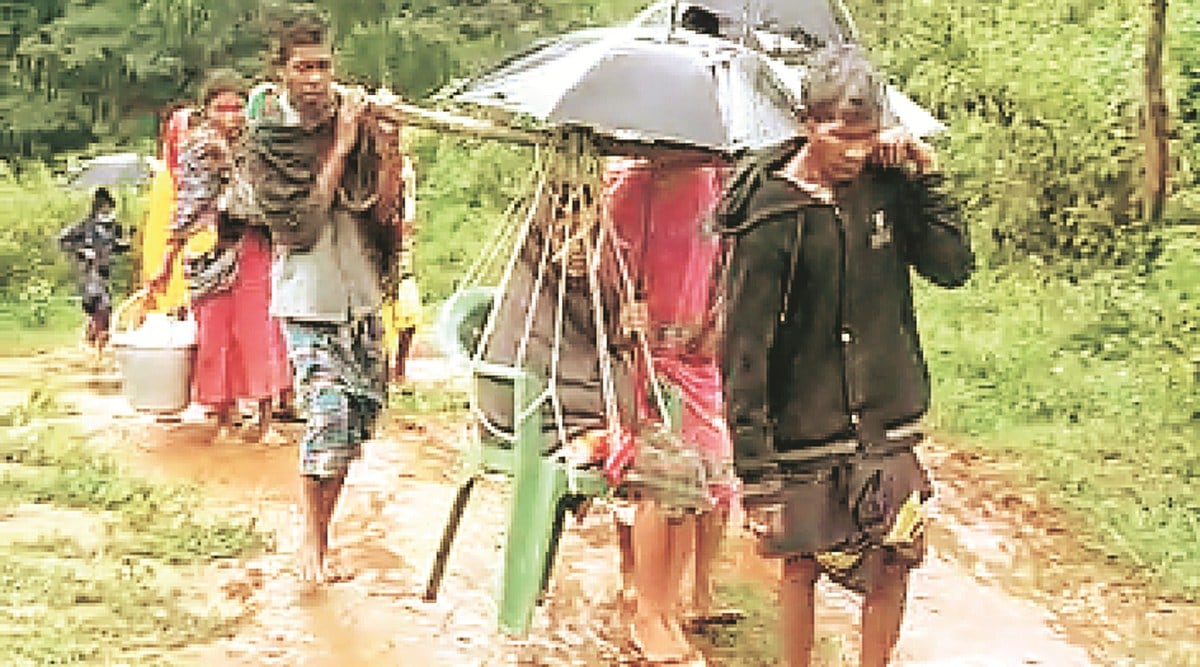 She gave birth to twins, of whom one survived.(Express)
She gave birth to twins, of whom one survived.(Express)Officials in Odisha’s Koraput district have initiated an inquiry after a pregnant woman who went into labour was carried to the nearest community health centre on a chair tied with ropes as an ambulance could not reach her village to carry her. She gave birth to twins, of whom one survived.
Rupali Saunta, a resident of Jholaguda village of Chikambo panchayat under the Dasamantpur block, had complained of labour pain on Monday morning, following which her family had called the 108 ambulance services.
“They informed us that they could not reach the village due to inaccessible roads. So a makeshift carrier with the help of a plastic chair was created to help me reach the hospital for delivery,” she said.

Her husband Jagga and his father carried her on the chair from their village to the hospital. “The village is on a hilly terrain. There are roads carved out but due to rains they become muddy and slippery.At most times no ambulance is able to reach the village and the situation only worsens during monsoon,” Jagga said.
At the Dasamantpur community health centre, the babies were delivered with the help of an ASHA worker trained for institutional deliveries. However, while the girl survived and is under observation, the boy was stillborn.
Chief District Medial and Public Health Officer Dr Makranda Beura has ordered an inquiry into the matter and has asked the block-level medical officer to submit a report in two days. Beura said, “As per the primary information that we have, the babies were premature. The girl is under observation and the mother is doing well. I have asked for a detailed report about why an ambulance could not reach the village and whether there was a lapse in immediately treating the woman. Necessary and adequate actions will be taken based on the report and against those found at fault.
“Road connectivity has always been an issue here due to the hilly terrain and forest areas which make many villages inaccessible. And there was continuous rainfall for the last ten days which has also made roads inaccessible making the situation worse. Delivery can also be done at home by skilled health workers but people also need to inform us first. But if there are no roads, there is little that we can do,” Beura said.
The district has also set up centres for deliveries in areas which are distant from healthcare facilities but the administration claims that the citizens prefer informing ambulance services over referring themselves at these centres for deliveries.
According to the last National Family Health Survey Report for the state, Koraput had reported 69 per cent institutional deliveries. The infant mortality rate stands at 48 per 1,000 infants.